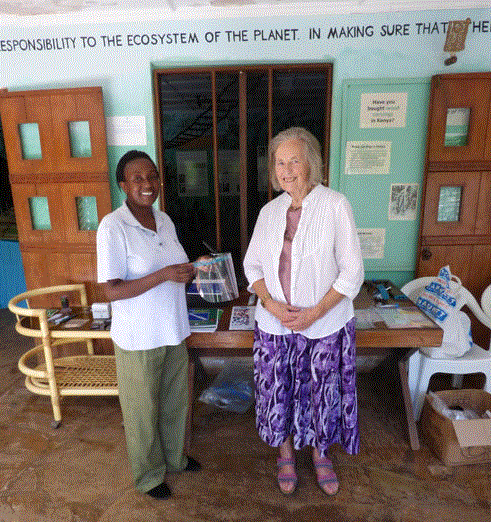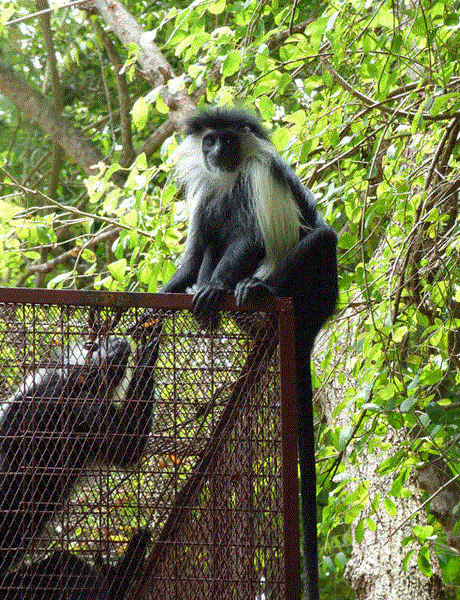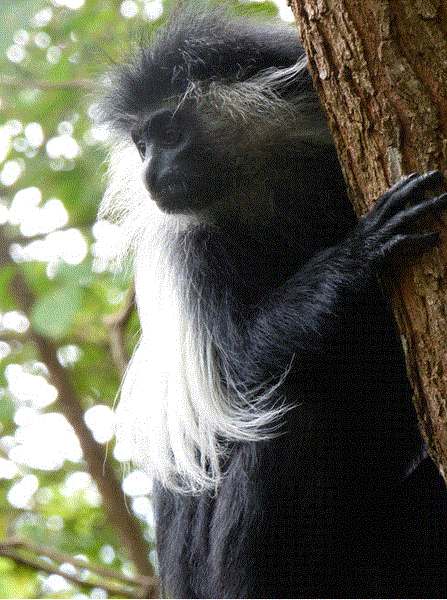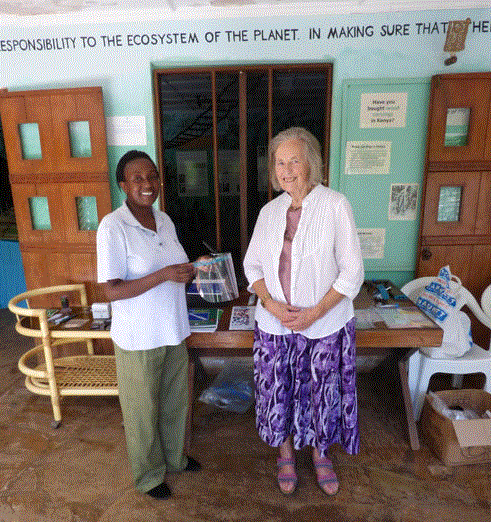
Kenya Workshop Discusses Health, Diseases, and Pathology of Primates
Share
Non-human primates (monkeys and apes) face many threats, amongst them poaching, destruction of habitat and infectious disease.

Dr Steven Unwin, organiser of the PASA Veterinary Workshop in Kenya, briefs delegates before formal sessions start.
Both the conservation and the welfare of these species is promoted by ensuring that sick, injured and orphaned animals receive appropriate care and, whenever possible, are returned to the wild. A Workshop on this topic held in Diani, on the South Coast of Kenya, from 3rd - 7th November 2014, brought together veterinarians and primatologists from the Democratic Republic of Congo (DRC), Congo Brazzaville, Nigeria, Cameroon, Rwanda, Uganda, Kenya, South Africa and Brazil as well as several European countries and the USA. The Workshop was hosted by Colobus Conservation (a Kenya-based NGO, http://www.colobusconservation.org/), at the premises of which practical work took place, while most of the lectures were delivered in the luxuriant setting of Diani Sea Resort Hotel .
This Workshop was organised by the Pan African Sanctuary Alliance (PASA), which has members throughout Africa. PASA sanctuaries provide care for more than 3,000 chimpanzees, gorillas, bonobos and thousands of other primates and endeavour to return these displaced animals to the wild or to maintain them in groups for captive-breeding and subsequent release of offspring.

Professor John Cooper and Dr Helene De Nys perform a post mortem examination of a colobus monkey, wearing protective clothing to minimise the spread of pathogenic organisms that may cause disease in humans.
This was essentially a week of teaching, training, and exchanging information and comprised formal lectures, discussion groups and practical classes. The emphasis was on the healthcare of monkeys and apes. Topics covered in lectures, discussion groups and practical sessions included the formulation of disease risk contingency plans, surgery, pathology, husbandry, welfare and ethics and scientific writing. Of particular relevance to pathologists were the sessions on post-mortem examination and sample-taking. The importance of protecting personnel involved in this work was stressed, with particular reference to Ebola and other zoonoses. Participants were shown how to put on and remove protective clothing and how to take tissue samples from laboratory investigation.

Many of those attending the Workshop are involved not only in the veterinary care of captive monkeys and apes but also in the investigation of morbidity and mortality in free-living wild animals. This often necessitates the use of portable field equipment and a display of such items, ranging from lightweight spatulae and plastic Coplin staining jars, to the new battery-operated “Newton” microscope, attracted considerable interest. While the primary language used in the Workshop was English, the presence of delegates from several African countries, as well as from continental Europe, necessitated the use of both French and Swahili in lectures and practical classes.

The black and white colobus monkey, Colobus angolensis palliatus, which is found in both Kenya and Tanzania and is the focus of the conservation and rehabilitationwork carried out by Colobus Conservation in Diani.

Mrs Margaret Cooper discusses the use of portable field equipment, with particular reference to health and safety precautions.
All the work carried out in sanctuaries and in the field by veterinarians and primatologists requires a legal and ethical framework and this was discussed in both lectures and practical sessions. Depending on the country involved, legal considerations may include the need to obtain the correct permits to move samples from one country to another, health and safety, and registration as a veterinary surgeon/veterinarian by the country’s professional body.
The PASA Workshop held in Kenya in November hosted by Colobus Conservation, played an important part in providing up-to-date training for Africans and others in the veterinary care and conservation of our nearest relatives, all of which need help if they are to survive.
John E Cooper
Margaret E Cooper
November 2014
Written by Professor Cooper
